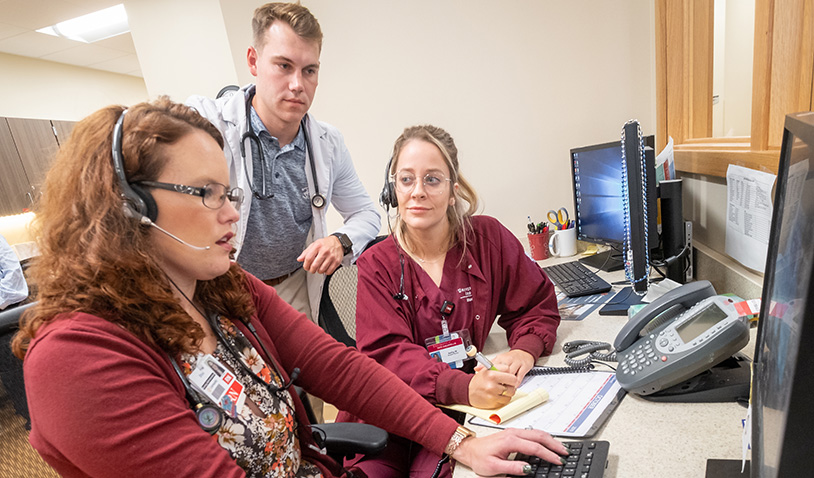My clinical experiences really exposed me to a different side of nursing. The nurses focus a lot on preventative measures, education, and follow ups. This showed me that care doesn’t stop once the patient leaves their appointment.
Primary Care Curriculum & Courses

Course Information
Information Technology and Communication in Ambulatory Care Settings will provide foundational knowledge and skills in healthcare technology and informatics. Students will learn to analyze and apply informatics concepts to promote computer literacy and healthcare information management in ambulatory healthcare settings. They will have the opportunity to determine solutions to issues related to technology and communication in the ambulatory healthcare setting.
Coordination of Care in Ambulatory Care Settings will assist students to apply health promotion concepts and advocate for the health needs of population groups with varied health statuses. Students will explore healthcare literacy for various patient populations and will learn to implement educational strategies based on patient needs. Interprofessional practice competencies will be used to coordinate the delivery of care within ambulatory healthcare settings.
The curriculum incorporates the Scope and Standards of the American Academy of Ambulatory Care Nursing (AAACN).